 W
WChristopher Addison, 1st Viscount Addison, was a British medical doctor and politician. A member of the Liberal and Labour parties, he served as Minister of Munitions during the First World War and was later Minister of Health under David Lloyd George and Leader of the House of Lords under Clement Attlee.
 W
WConel Hugh O'Donel Alexander, known as Hugh Alexander and C. H. O'D. Alexander, was an Irish-born British cryptanalyst, chess player, and chess writer. He worked on the German Enigma machine at Bletchley Park during the Second World War, and was later the head of the cryptanalysis division at GCHQ for 25 years. In chess, he was twice British chess champion and earned the title of International Master.
 W
WLeopold Charles Maurice Stennett Amery,, usually known as Leo Amery or L. S. Amery, was a British Conservative politician and journalist, noted for his interest in military preparedness, British India and the British Empire and for his opposition to appeasement.
 W
WWilliam Waldorf Astor II, 3rd Viscount Astor was an English businessman and Conservative Party politician. He was also a member of the Astor family.
 W
WClement Richard Attlee, 1st Earl Attlee, was a British politician who served as Prime Minister of the United Kingdom from 1945 to 1951 and Leader of the Labour Party from 1935 to 1955. He was Deputy Prime Minister during the wartime coalition government under Winston Churchill, and served twice as Leader of the Opposition from 1935 to 1940 and from 1951 to 1955.
 W
WAgnes Bernelle was a Berlin-born expatriate actress and singer, who lived in England for many years, then Ireland. She appeared in over 20 films and also made stage and television appearances.
 W
WErnest Bevin was a British statesman, trade union leader, and Labour politician. He co-founded and served as General Secretary of the powerful Transport and General Workers' Union in the years 1922–1940, and served as Minister of Labour and National Service in the war-time coalition government. He succeeded in maximising the British labour supply, for both the armed services and domestic industrial production, with a minimum of strikes and disruption.
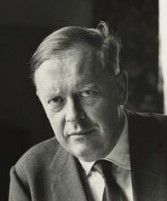 W
WEdward Charles Gurney Boyle, Baron Boyle of Handsworth, was a British Conservative Party politician and Vice-Chancellor of the University of Leeds.
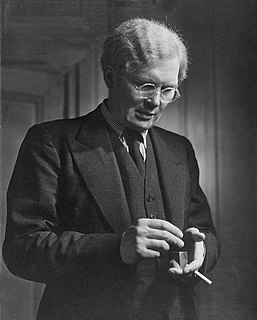 W
WBrendan Rendall Bracken, 1st Viscount Bracken, PC was an Irish-born businessman and a minister in the British Conservative cabinet. He is best remembered for supporting Winston Churchill during the Second World War. He was also the founder of the modern version of the Financial Times. He was Minister of Information from 1941 to 1945.
 W
WCharles Orwell Brasch was a New Zealand poet, literary editor and arts patron. He was the founding editor of the literary journal Landfall, and through his 20 years of editing the journal, had a significant impact on the development of a literary and artistic culture in New Zealand. His poetry continues to be published in anthologies today, and he provided substantial philanthropic support to the arts in New Zealand, including by establishing the Robert Burns Fellowship, the Frances Hodgkins Fellowship and the Mozart Fellowship at the University of Otago, by providing financial support to New Zealand writers and artists during his lifetime, and by bequeathing his extensive collection of books and artwork in his will to the Hocken Library and the University of Otago.
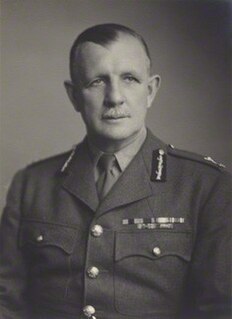 W
WGeneral Sir Reginald Alexander Dallas Brooks, was a British military commander who went on to become the 19th and longest-serving Governor of Victoria, Australia.
 W
WGuy Francis de Moncy Burgess was a British diplomat and Soviet agent, a member of the Cambridge Five spy ring that operated from the mid-1930s to the early years of the Cold War era. His defection in 1951 to the Soviet Union, with his fellow spy Donald Maclean, led to a serious breach in Anglo-United States intelligence co-operation, and caused long-lasting disruption and demoralisation in Britain's foreign and diplomatic services.
 W
WSir Alexander Montagu George Cadogan was a British diplomat and civil servant. He was Permanent Under-Secretary for Foreign Affairs from 1938 to 1946. His long tenure of the Permanent Secretary's office makes him one of the central figures of British policy before and during the Second World War. His diaries are a source of great value and give a sharp sense of the man and his life. Like most senior officials at the Foreign Office, he was bitterly critical of the appeasement policies of the 1930s but admitted that until British rearmament was better advanced, there were few other options. In particular, he stressed that without an American commitment to joint defence against Japan, Britain would be torn between the eastern and western spheres. Conflict with Germany would automatically expose Britain's Asian Empire to Japanese aggression.
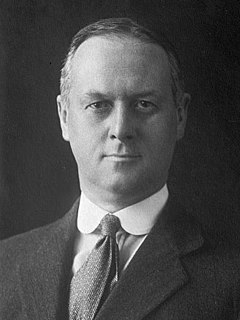 W
WThomas Walker Hobart Inskip, 1st Viscount Caldecote, was a British politician who served in many legal posts, culminating in serving as Lord Chancellor from 1939 until 1940. Despite legal posts dominating his career for all but four years, he is most prominently remembered for serving as Minister for Coordination of Defence from 1936 until 1939.
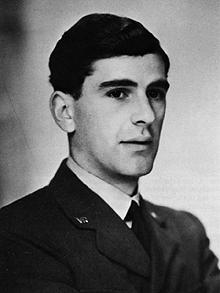 W
WPeter John Ambrose Calvocoressi was a British lawyer, Liberal politician, historian, and publisher. He served as an intelligence officer at Bletchley Park during World War II.
 W
WJoan Elisabeth Lowther Murray, MBE was an English cryptanalyst and numismatist best known for her work as a code-breaker at Bletchley Park during the Second World War. Although she did not personally seek the spotlight, her role in the Enigma project that decrypted Nazi Germany's secret communications earned her awards and citations, such as appointment as a Member of the Order of the British Empire (MBE), in 1946.
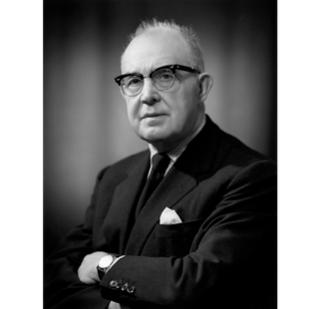 W
WArthur Creech Jones was a British trade union official and politician. Originally a civil servant, his imprisonment as a conscientious objector during the First World War forced him to change careers. He was elected to Parliament in 1935 and developed a reputation for interest in colonial matters, gaining the nickname "unofficial member of the Kikuyu at Westminster". He served in the Colonial Office in the Labour government of 1945–1950. After losing his seat in the 1950 general election he was involved in writing and lecturing about British colonies, before returning to Parliament in 1954. Initially he was known as Arthur Jones, but throughout his time in politics he invariably used his middle name.
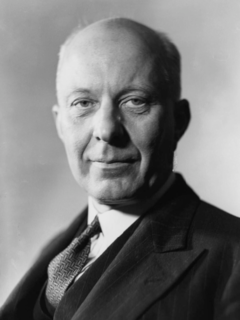 W
WEdward Hugh John Neale Dalton, Baron Dalton, was a British Labour Party economist and politician who served as Chancellor of the Exchequer from 1945 to 1947. He shaped Labour Party foreign policy in the 1930s, opposing pacifism and promoting rearmament against the German threat, and strongly opposed the appeasement policy of Prime Minister Neville Chamberlain in 1938. Dalton served in Winston Churchill's wartime coalition cabinet; after the Dunkirk evacuation he was Minister of Economic Warfare, and established the Special Operations Executive. As Chancellor, he pushed his policy of cheap money too hard, and mishandled the sterling crisis of 1947. His political position was already in jeopardy in 1947 when he, seemingly inadvertently, revealed a sentence of the budget to a reporter minutes before delivering his budget speech. Prime Minister Clement Attlee accepted his resignation; Dalton later returned to the cabinet in relatively minor positions.
 W
WDenis Sefton Delmer was a Jewish-British journalist of Australian heritage and propagandist for the British government during the Second World War. Fluent in German, he became friendly with Ernst Röhm, who arranged for him to interview Adolf Hitler in 1931. During the war, he led a black propaganda campaign against Hitler by radio from England. It was so successful that Delmer was named in the Nazis' Black Book for immediate arrest after their planned invasion of Britain.
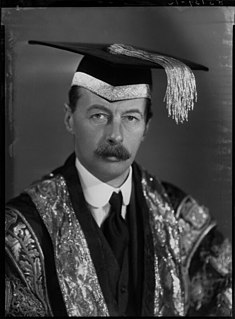 W
WEdward William Spencer Cavendish, 10th Duke of Devonshire,, known as the Marquess of Hartington from 1908 to 1938, was a British politician. He was the head of the Devonshire branch of the House of Cavendish. He had careers with the army and in politics and was a senior freemason. His sudden death, apparently of a heart attack at the age of fifty-five, occurred in the presence of the suspected serial killer John Bodkin Adams.
 W
WRobert Anthony Eden, 1st Earl of Avon,, was a British Conservative politician who served three periods as Foreign Secretary and then as Prime Minister of the United Kingdom from 1955 to 1957.
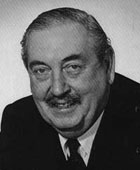 W
WBrigadier Sir Richard Gambier-Parry, was a British military officer who served in both the army and the air force during World War I. He remained in military service post-war, but then entered into civilian life for more than a decade. In 1938, he was recruited by the head of the Secret Intelligence Service. Gambier-Parry led the Communications Section of the SIS during World War II, and assembled a clandestine wireless network that connected the United Kingdom with SIS agents in many countries, as well as helping to create the SIS resistance network in Britain. During the war, he was also recruited by the Director of British Naval Intelligence to serve as the radio consultant for Operation Tracer in Gibraltar. Post-war, he ran a network of secret listening stations.
 W
WIrving John Good was a British mathematician who worked as a cryptologist at Bletchley Park with Alan Turing. After the Second World War, Good continued to work with Turing on the design of computers and Bayesian statistics at the University of Manchester. Good moved to the United States where he was professor at Virginia Tech.
 W
WEdward Frederick Lindley Wood, 1st Earl of Halifax,, known as The Lord Irwin from 1925 until 1934 and The Viscount Halifax from 1934 until 1944, was a senior British Conservative politician and diplomat of the 1930s. He held several senior ministerial posts during this time, most notably those of Viceroy of India from 1925 to 1931 and of Foreign Secretary between 1938 and 1940. He was one of the architects of the policy of appeasement of Adolf Hitler in 1936–38, working closely with Prime Minister Neville Chamberlain. However, after Kristallnacht and the German occupation of Czechoslovakia in March 1939 he was one of those who pushed for a new policy of attempting to deter further German aggression by promising to go to war to defend Poland.
 W
WGeorge Henry Hall, 1st Viscount Hall, PC, was a British Labour politician. He served as Secretary of State for the Colonies between 1945 and 1946 and as First Lord of the Admiralty between 1946 and 1951.
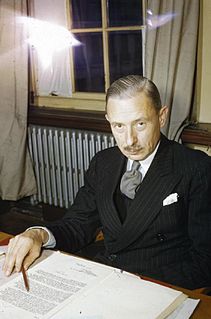 W
WSir Ivone Augustine Kirkpatrick, was a British diplomat who served as the British High Commissioner in Germany after World War II, and as the Permanent Under-Secretary of State for Foreign Affairs, the highest-ranking civil servant in the Foreign Office.
 W
WSir Reginald "Rex" Wildig Allen Leeper was a British civil servant and diplomat. He was the founder of the British Council.
 W
WWilliam Francis Hare, 5th Earl of Listowel,, styled Viscount Ennismore between 1924 and 1931, was an Anglo-Irish peer and Labour politician. He was the last Secretary of State for India as well as the last Governor-General of Ghana.
 W
WGeorge Ambrose Lloyd, 1st Baron Lloyd, was a British Conservative politician strongly associated with the "Diehard" wing of the party.
 W
WSir Robert Hamilton Bruce Lockhart, KCMG was a British diplomat, journalist, author, secret agent, and footballer. His 1932 book Memoirs of a British Agent became an international bestseller and brought him to the world's attention by telling of his failed effort to sabotage the Bolshevik Revolution in Moscow in 1918. His co-conspirators were double agents working for the Bolsheviks. In the end, the "Lockhart Plot" was revealed as a cunning sting operation controlled by Felix Dzerzhinsky with the goal of discrediting the British and French governments.
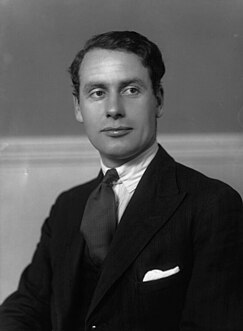 W
WMalcolm John MacDonald was a British politician and diplomat.
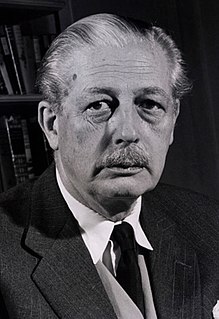 W
WMaurice Harold Macmillan, 1st Earl of Stockton, was a British Conservative politician who was Prime Minister of the United Kingdom from 1957 to 1963. Caricatured as "Supermac", he was known for his pragmatism, wit and unflappability.
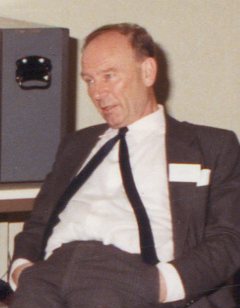 W
WDonald Michie was a British researcher in artificial intelligence. During World War II, Michie worked for the Government Code and Cypher School at Bletchley Park, contributing to the effort to solve "Tunny", a German teleprinter cipher.
 W
WSir Philip Stuart Milner-Barry was a British chess player, chess writer, World War II codebreaker and civil servant. He represented England in chess both before and after World War II. He worked at Bletchley Park during World War II, and was head of "Hut 6", a section responsible for deciphering messages which had been encrypted using the German Enigma machine. He was one of four leading codebreakers at Bletchley to petition the then-Prime Minister Winston Churchill directly for more resources for their work. After the war he worked in the Treasury, and later administered the British honours system. In chess, he represented England in international tournaments, and lent his name to four opening variations.
 W
WSir David Taylor Monteath was a British civil servant, working at the India Office in London, who was the last Permanent Under Secretary of State for India and Burma before independence meant that the post was no longer required.
 W
WWalter Edward Guinness, 1st Baron Moyne, DSO & Bar, PC, was an Anglo-Irish politician and businessman. He served as the British minister of state in the Middle East until November 1944, when he was assassinated by the Jewish terrorist group Lehi. The assassination of Lord Moyne sent shock waves through Palestine and the rest of the world.
 W
WGeoffrey William Richard Hugh FitzClarence, 5th Earl of Munster, KBE, PC was a British peer and Conservative politician.
 W
WMaxwell Herman Alexander Newman, FRS,, generally known as Max Newman, was a British mathematician and codebreaker. His work in World War II led to the construction of Colossus, the world's first operational, programmable electronic computer, and he established the Royal Society Computing Machine Laboratory at the University of Manchester, which produced the world's first working, electronic stored-program electronic computer in 1948, the Manchester Baby.
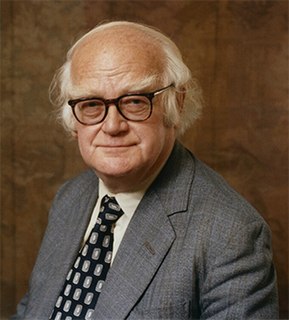 W
WHerbert John Harvey Parker, normally known as John Parker, was a British Labour politician. He was the longest-serving Labour Party Member of Parliament (MP), retaining his seat in the House of Commons for over 47 years, until being overtaken by Dennis Skinner on 17 December 2017.
 W
WFrederick William Pethick-Lawrence, 1st Baron Pethick-Lawrence, PC was a British Labour politician, and campaigned for women's suffrage.
 W
WHarold Adrian Russell "Kim" Philby was a British intelligence officer and a double agent for the Soviet Union. In 1963 he was revealed to be a member of the Cambridge Five, a spy ring which passed information to the Soviet Union during World War II and in the early stages of the Cold War. Of the five, Philby is believed to have been most successful in providing secret information to the Soviets.
 W
WSir Malcolm Arnold Robertson was a British diplomat and politician. He was appointed Minister Plenipotentiary in Argentina in 1925, and became Ambassador to Argentina from 1927 to 1929.
 W
WRobert Arthur James Gascoyne-Cecil, 5th Marquess of Salisbury,, known as Viscount Cranborne from 1903 to 1947, was a British Conservative politician.
 W
WLawrence Roger Lumley, 11th Earl of Scarbrough, was a British Conservative politician and British Army general.
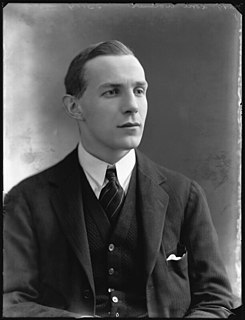 W
WRoundell Cecil Palmer, 3rd Earl of Selborne, CH, PC, known as "Top Wolmer" and styled Viscount Wolmer from 1895 to 1941, was a British administrator, intelligence officer and Conservative politician.
 W
WSir Geoffrey Hithersay Shakespeare, 1st Baronet was a British Liberal Party politician.
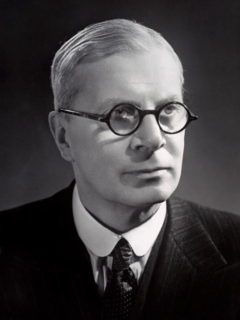 W
WOliver Frederick George Stanley was a prominent British Conservative politician who held many ministerial posts before his relatively early death.
 W
WOliver Strachey CBE, a British civil servant in the Foreign Office, was a cryptographer from World War I to World War II.
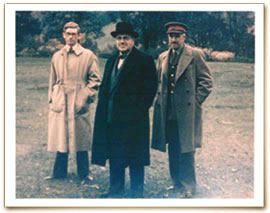 W
WBrigadier John Hessell Tiltman, was a British Army officer who worked in intelligence, often at or with the Government Code and Cypher School (GC&CS) starting in the 1920s. His intelligence work was largely connected with cryptography, and he showed exceptional skill at cryptanalysis. His work in association with Bill Tutte on the cryptanalysis of the Lorenz cipher, the German teleprinter cipher, called "Tunny" at Bletchley Park, led to breakthroughs in attack methods on the code, without a computer. It was to exploit those methods, at extremely high speed with great reliability, that Colossus, the first digital programmable electronic computer, was designed and built.
 W
WSir Edward Wilfred Harry Travis was a British cryptographer and intelligence officer, becoming the operational head of Bletchley Park during World War II, and later the head of GCHQ.
 W
WAlan Mathison Turing was an English mathematician, computer scientist, logician, cryptanalyst, philosopher, and theoretical biologist. Turing was highly influential in the development of theoretical computer science, providing a formalisation of the concepts of algorithm and computation with the Turing machine, which can be considered a model of a general-purpose computer. Turing is widely considered to be the father of theoretical computer science and artificial intelligence.
 W
WWilliam Thomas Tutte OC FRS FRSC was an English and Canadian codebreaker and mathematician. During the Second World War, he made a brilliant and fundamental advance in cryptanalysis of the Lorenz cipher, a major Nazi German cipher system which was used for top-secret communications within the Wehrmacht High Command. The high-level, strategic nature of the intelligence obtained from Tutte's crucial breakthrough, in the bulk decrypting of Lorenz-enciphered messages specifically, contributed greatly, and perhaps even decisively, to the defeat of Nazi Germany. He also had a number of significant mathematical accomplishments, including foundation work in the fields of graph theory and matroid theory.
 W
WLawrence John Lumley Dundas, 2nd Marquess of Zetland,, styled Lord Dundas until 1892 and Earl of Ronaldshay between 1892 and 1929, was a British Conservative politician. An expert on India, he served as Secretary of State for India in the late 1930s.